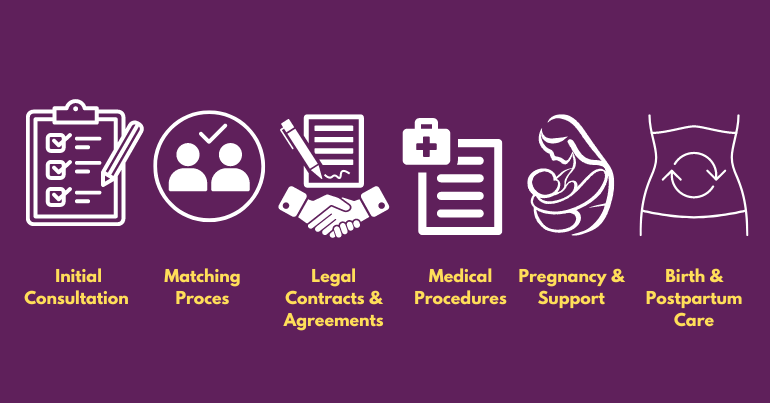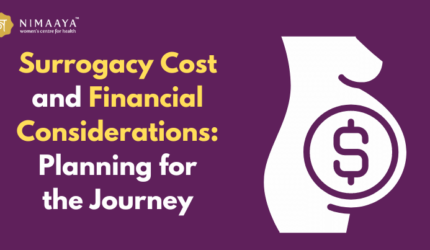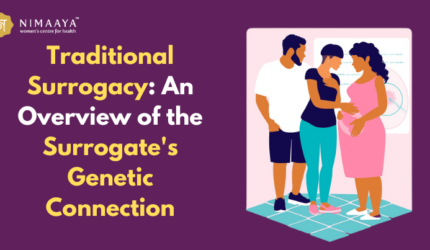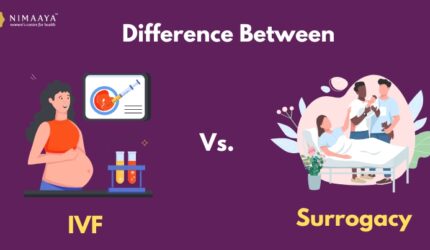Introduction
Welcome to the comprehensive guide on surrogate mother, a topic that encompasses a plethora of emotions, legalities, and medical procedures. womb foster motherhood, often referred to simply as surrogacy, has garnered significant attention in recent years due to its role in helping individuals and couples fulfill their dreams of parenthood. In this guide, we’ll delve into the meaning of surrogate mom, the process of being a surrogate mom, the costs involved, and the intricacies of surrogacy in gestation. Whether you’re considering becoming a surrogate, exploring surrogacy options, or simply seeking information, this guide aims to provide you with a thorough understanding of this complex but rewarding journey.
Unveiling the Surrogate Mother’s Meaning
Unveiling the surrogate mother meaning sheds light on a profound act of compassion and generosity. In essence, a surrogate or womb foster mother, also known as a gestational carrier, selflessly carries and delivers a child for another individual or couple, thereby enabling them to realize their dream of parenthood. This remarkable journey involves the surrogate willingly offering her body as a vessel for the growth and development of a precious life, despite not having a genetic connection to the child she carries. Surrogate mom-hood embodies empathy, altruism, and the profound desire to help others create or expand their families, making it a deeply meaningful and impactful endeavor.
How Does a Surrogate Mother Get Pregnant?

How does surrogate mother get pregnant? The process typically involves several steps, with the primary method being gestational surrogacy. In this approach, the surrogate undergoes in vitro fertilization (IVF), where eggs are retrieved from either the intended mother or an egg donor and fertilized with sperm from the intended father or a sperm donor. Once embryos are formed, one or more are transferred to the surrogate’s uterus, where they implant and develop into a pregnancy. This method allows the surrogate to carry a child biologically unrelated to her, making it a popular choice for intended parents seeking a genetic connection to their child.
Deciphering the Process of Surrogate Mother: A Step-by-Step Guide

Embarking on the journey of surrogacy involves navigating through a complex yet rewarding process known as the surrogate mother process. This comprehensive guide aims to illuminate the intricate steps involved, providing clarity and understanding to both intended parents and potential surrogates. Let’s delve into each stage of the process, from initial preparations to the joyful culmination of bringing new life into the world.
❧ Initial Consultation and Evaluation:
The process of becoming a womb foster mother commences with an initial consultation, where intended parents and potential surrogates meet with medical professionals and fertility specialists. During this stage, both parties discuss their expectations, desires, and concerns regarding surrogacy. Medical evaluations are conducted to ensure that the surrogate is physically and emotionally prepared for the journey ahead. These assessments may include blood tests, ultrasounds, and psychological screenings to confirm the surrogate’s suitability for the process.
❧ Matching Process:
Once the initial evaluations are completed, the matching process begins. Intended parents may choose to work with a surrogacy agency or independently search for a surrogate. Compatibility between the intended parents and surrogate is crucial, as they will be embarking on a deeply personal and intimate journey together. Factors such as shared values, communication preferences, and legal considerations are taken into account during the matching process to ensure a harmonious partnership.
❧ Legal Contracts and Agreements:
Before proceeding with any medical procedures, legal contracts, and agreements are drafted to protect the rights and responsibilities of all parties involved. These contracts outline various aspects of the surrogacy arrangement, including financial agreements, medical procedures, parental rights, and potential contingencies. It’s essential for both the intended parents and surrogate to review these contracts carefully and consult with legal counsel to address any concerns or questions.
❧ Medical Procedures:
With legalities in place, the process moves forward with medical procedures. In surrogacy of gestation, the most common type of surrogacy, the surrogate undergoes in vitro fertilization (IVF) to achieve pregnancy. This involves the retrieval of eggs from the intended mother or an egg donor, fertilization of the eggs with sperm from the intended father or a sperm donor, and the embryos that are produced being transferred into the surrogate’s uterus. Close monitoring and support from medical professionals ensure the success and safety of the procedure.
❧ Pregnancy and Support:
Once the embryo transfer is completed, the surrogate enters the pregnancy phase, where she carries and nurtures the developing fetus. Throughout the pregnancy, the surrogate receives ongoing medical care and support from her healthcare team, as well as emotional support from the intended parents. Open communication and regular updates help foster a strong bond between the surrogate and intended parents, creating a supportive environment for all involved.
❧ Birth and Postpartum Care:
The culmination of this process is the birth of the child. Whether through vaginal delivery or cesarean section, the delivery process is a momentous occasion filled with joy and anticipation. Following the birth, the surrogate may choose to maintain contact with the intended parents and the child, depending on their agreed-upon arrangements. Postpartum care and support are provided to ensure the surrogate’s physical and emotional well-being as she transitions out of her role as a surrogate.
The process of surrogate or womb foster mother is a multifaceted journey that requires careful planning, coordination, and support from all parties involved. By understanding each step of the process and embracing the challenges and joys along the way, intended parents and surrogates can embark on this transformative experience with confidence and optimism. Through empathy, communication, and mutual respect, the surrogate mother process can lead to the fulfillment of dreams and the creation of new families.
Also Read: Surrogacy Cost and Financial Considerations: Planning for the Journey
Benefits of Being a Surrogate Mother
The benefits of being a womb foster mother extend beyond the fulfillment of helping intended parents realize their dreams of parenthood. For many women, the journey of surrogacy brings a profound sense of purpose and altruism, knowing that they are making a significant difference in someone else’s life. Moreover, surrogates often receive comprehensive medical care throughout the pregnancy, including regular check-ups, screenings, and support from experienced healthcare professionals.
Financial compensation is also a notable benefit for many surrogate moms, which can help alleviate financial burdens or contribute to savings for future endeavors. Additionally, the emotional satisfaction of witnessing the joy and gratitude of the intended parents upon the birth of their child can be immensely rewarding, creating lasting bonds and cherished memories. Overall, the experience of being a womb foster mother offers a unique opportunity for personal growth, fulfillment, and the profound joy of bringing new life into the world.
Cost of a Surrogate Mother
The cost of a surrogate or womb foster mom can vary significantly depending on various factors, including the country where the surrogacy takes place. Surrogate mother costs in India, for instance, may be comparatively lower due to the lower cost of living and medical expenses. Surrogate mother in India can provide a more affordable option for intended parents seeking surrogacy services.
However, it’s important to consider all aspects of the process, including legal fees, medical procedures, and compensation for the surrogate. In surrogacy of gestation, which is the most common type of surrogacy, additional expenses may include the cost of in vitro fertilization (IVF) and any associated fertility treatments. Despite the potential cost savings, it’s essential for intended parents to thoroughly research and understand all financial implications before embarking on the surrogacy journey.
Conclusion:-
In conclusion, surrogate motherhood offers hope and possibilities to individuals and couples who may otherwise be unable to conceive a child on their own. By understanding the meaning of surrogate mom, the process, the costs involved, and the nuances of gestational surrogacy, or by just consulting with an expert like those at Nimaaya IVF Center in Vadodara, individuals can make informed decisions about pursuing surrogacy as a path to parenthood. Whether you’re considering becoming a surrogate or seeking to expand your family through surrogacy, remember that you’re not alone in this journey, and there are resources and support available to guide you every step of the way.







